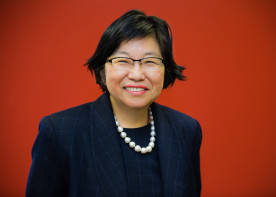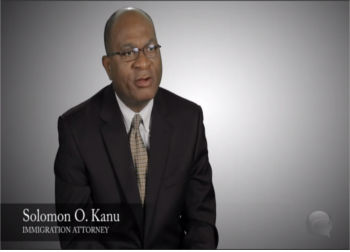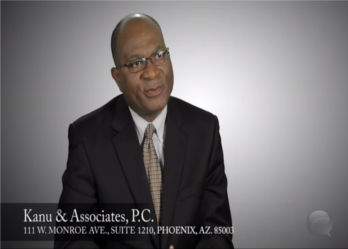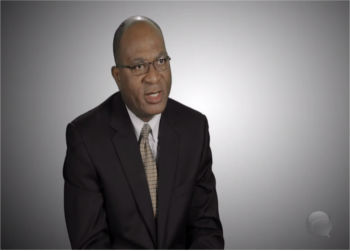Immigration Law History & Experience - Part 2 | Ohio
Margaret W. Wong
The American History really controls the inflow, the immigrants of our people. But in the past 20 or 30 years, that’s where I lucked out because I came right at the height of the economic boom off of America. But now it’s difficult because now with the– because H1B law is only 65 number. In my days I was H1B. That’s unlimited numbers. The filing fee in my days is like $25. Now it’s just a filing fee of H1B is $1500. Anybody who hires more than 25 people, the $500 anti-fraud, $320 for the H1. If you have family and married, that’s another $300 including wife and kids. So if you have five kids and one husband, you still– it’s under the one filing fee of $340 so H1B.
So things have really changed. If you have Masters, if you have a net of $20,000– so by April first all these numbers that you stop. So both as an immigration lawyer and as clients, we are very in tuned to the timing of the year. The H2s are the Mexicans. On H2s they come to America by February, March, or April because that’s when all the seasonal work is coming, and they leave because Christmas is a big holiday in South America and Central America. So they normally go home at that time and come back. Then a lot of foreign students now because they all economically more powerful than we were when I came. When I came just a one-way airfare from the Far East is three, four thousand U.S. The exchange rate in those days is eight to one. Now it’s still eight to one. In China now six to one, 6.4 to 1. So in my days it cost like thousands of dollars to fly over on 90 day, 30 day boat ride. So we’d never go home. Even for New Years we’d pay– even though you’re willing to pay to stand in line in the dormitories to make a long distance call. One long distance call for one year. But we write letters. Of course in those days there’s no Google. The phone is still circular phone. It’s not a punch phone.
So I look back and I’m so glad of this program because it really makes me think how times have changed. But the work remains the same. To be a great anything, Minister, lawyer, doctor, cook, dry cleaner, you really have to be the best of the best. If not you won’t survive in America. It’s not like 30, 40 years ago. All of us expected a job. The unemployment rate was about one or two percent. Now it’s like– they say 7%. I think it’s like 15% now unemployment. You’re not good you’re not going to get a job. If you get a job you won’t be happy. So why work when you’re not happy and you really are not accomplishing your dreams.
By: Margaret Wong
The American History really controls the inflow, the immigrants of our people. But in the past 20 or 30 years, that’s where I lucked out because I came right at the height of the economic boom off of America. But now it’s difficult because now with the– because H1B law is only 65 number. In my days I was H1B. That’s unlimited numbers. The filing fee in my days is like $25. Now it’s just a filing fee of H1B is $1500. Anybody who hires more than 25 people, the $500 anti-fraud, $320 for the H1. If you have family and married, that’s another $300 including wife and kids. So if you have five kids and one husband, you still– it’s under the one filing fee of $340 so H1B.
So things have really changed. If you have Masters, if you have a net of $20,000– so by April first all these numbers that you stop. So both as an immigration lawyer and as clients, we are very in tuned to the timing of the year. The H2s are the Mexicans. On H2s they come to America by February, March, or April because that’s when all the seasonal work is coming, and they leave because Christmas is a big holiday in South America and Central America. So they normally go home at that time and come back. Then a lot of foreign students now because they all economically more powerful than we were when I came. When I came just a one-way airfare from the Far East is three, four thousand U.S. The exchange rate in those days is eight to one. Now it’s still eight to one. In China now six to one, 6.4 to 1. So in my days it cost like thousands of dollars to fly over on 90 day, 30 day boat ride. So we’d never go home. Even for New Years we’d pay– even though you’re willing to pay to stand in line in the dormitories to make a long distance call. One long distance call for one year. But we write letters. Of course in those days there’s no Google. The phone is still circular phone. It’s not a punch phone.
So I look back and I’m so glad of this program because it really makes me think how times have changed. But the work remains the same. To be a great anything, Minister, lawyer, doctor, cook, dry cleaner, you really have to be the best of the best. If not you won’t survive in America. It’s not like 30, 40 years ago. All of us expected a job. The unemployment rate was about one or two percent. Now it’s like– they say 7%. I think it’s like 15% now unemployment. You’re not good you’re not going to get a job. If you get a job you won’t be happy. So why work when you’re not happy and you really are not accomplishing your dreams.
By: Margaret Wong






